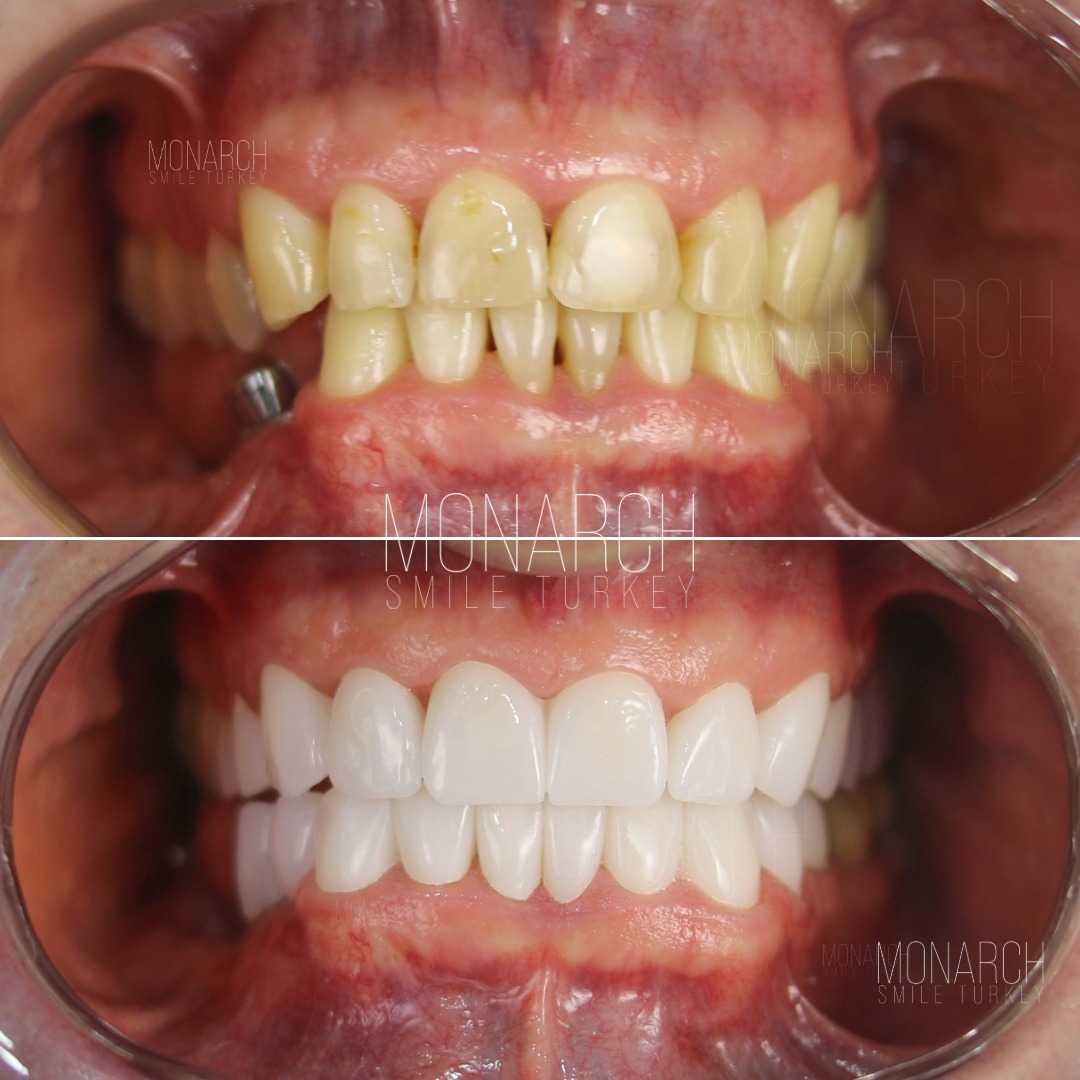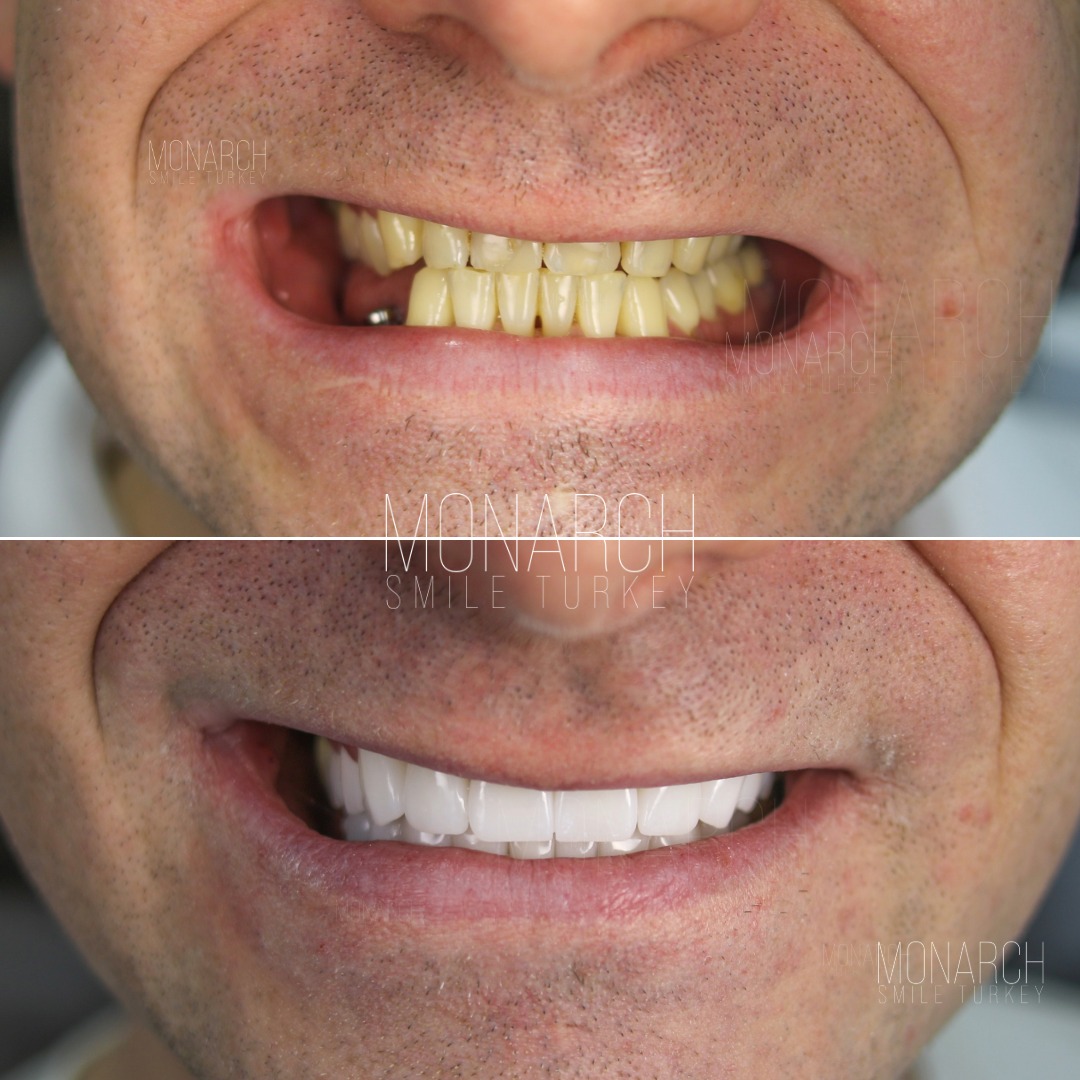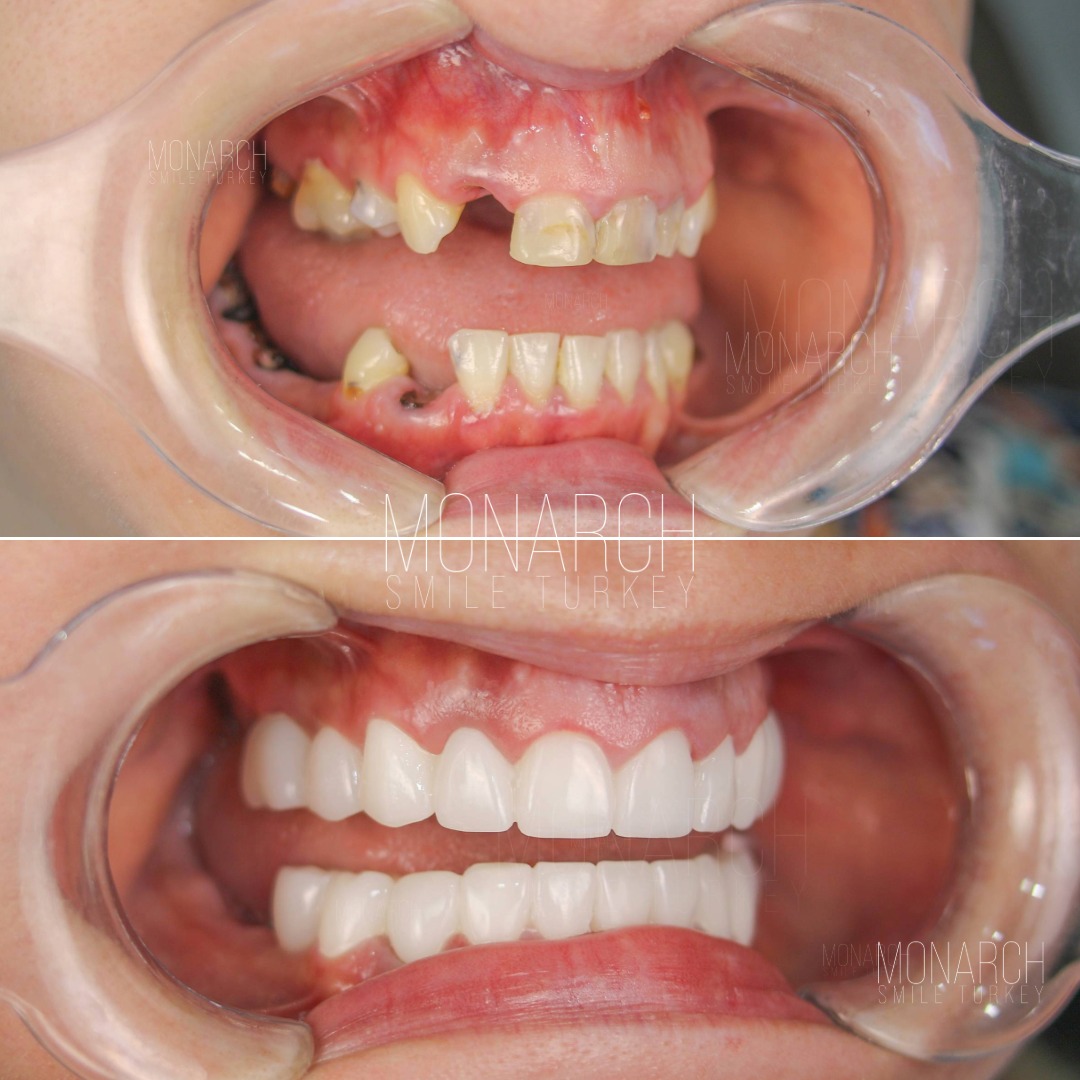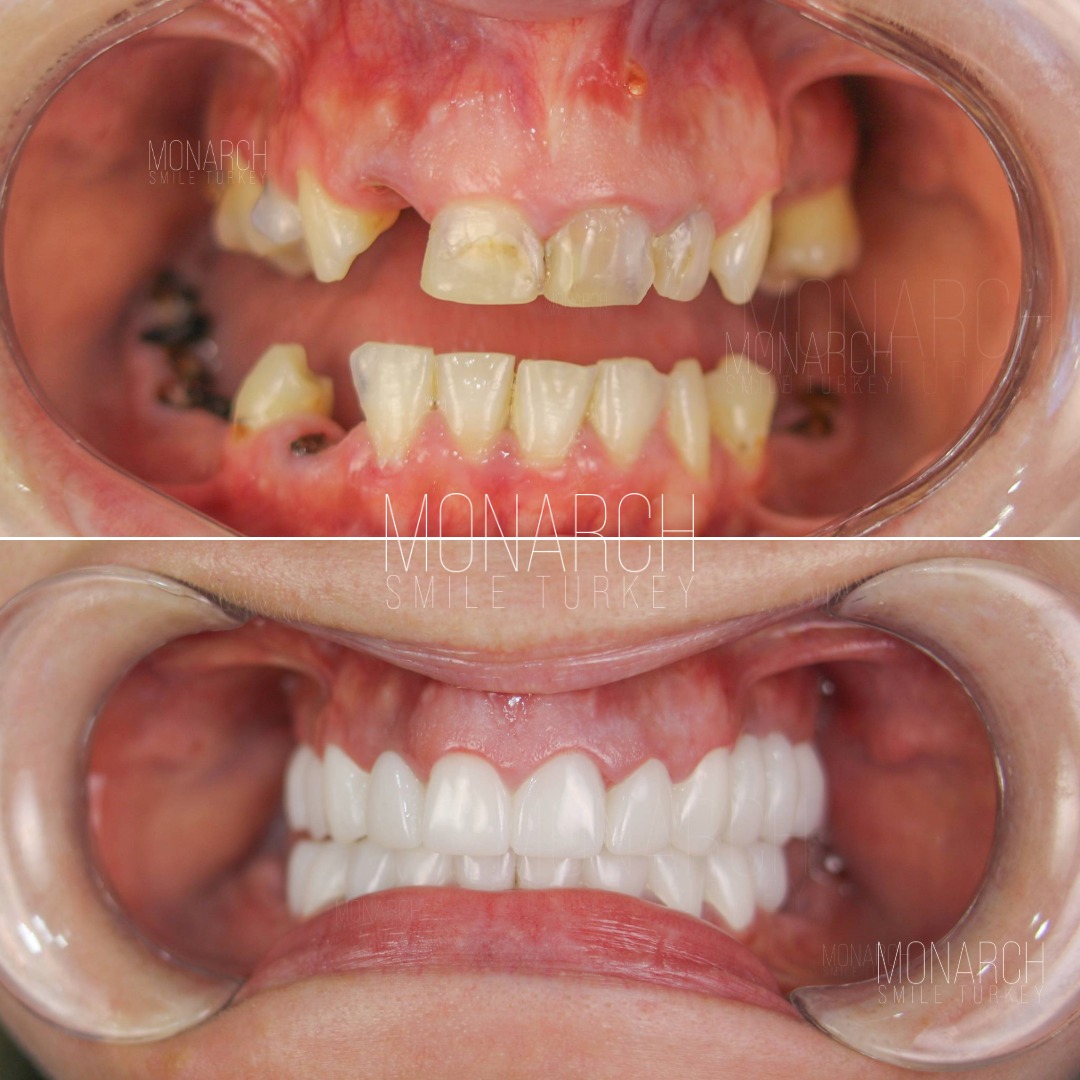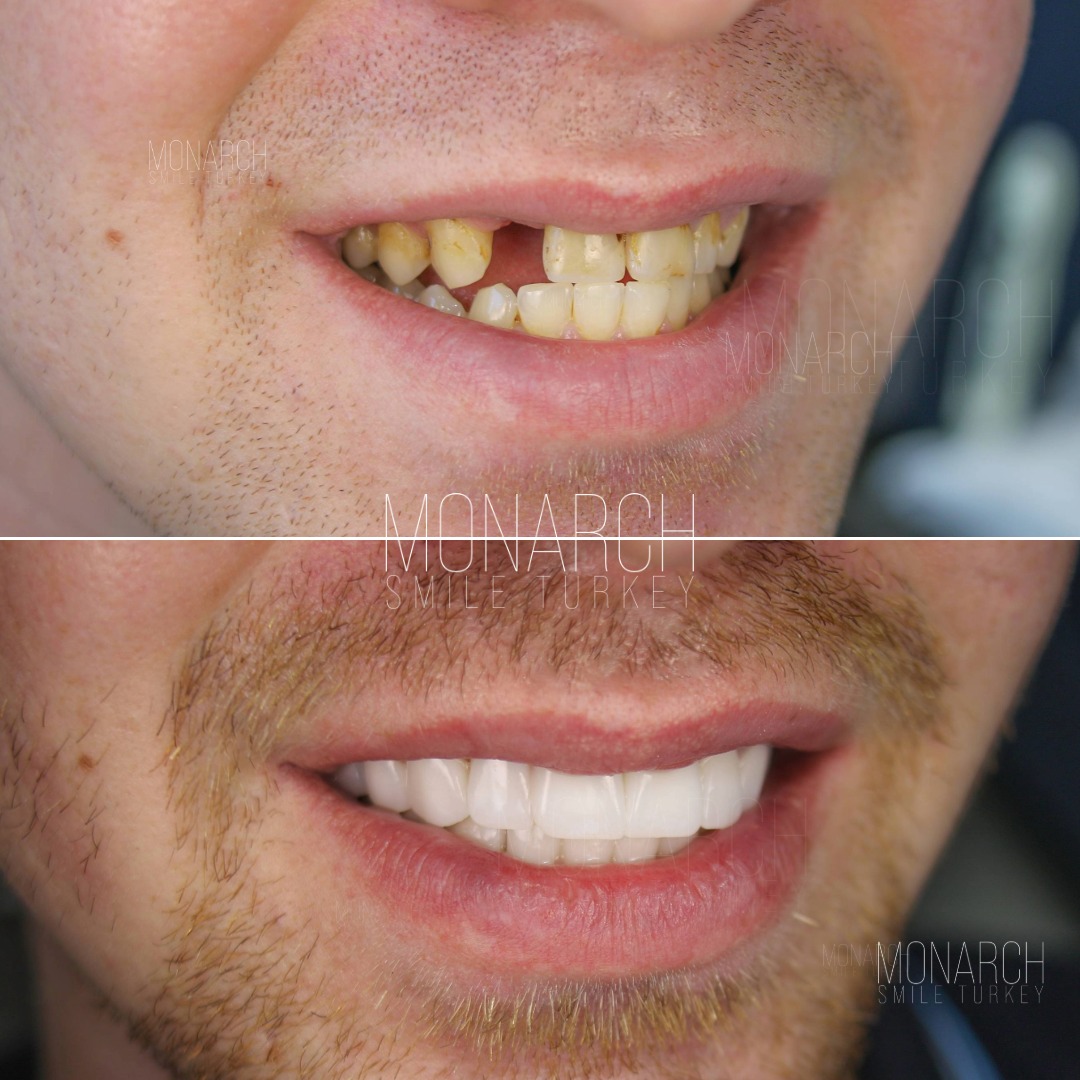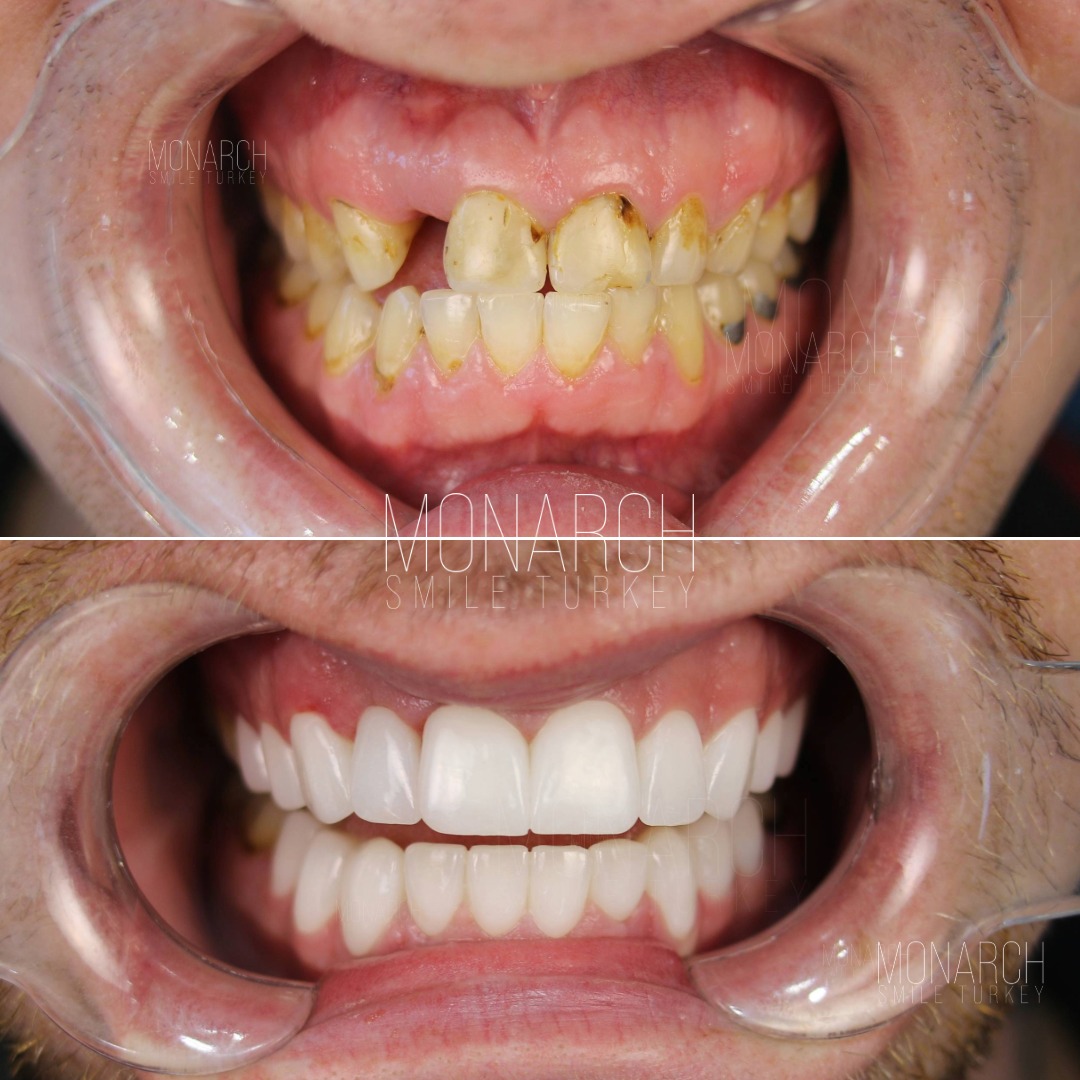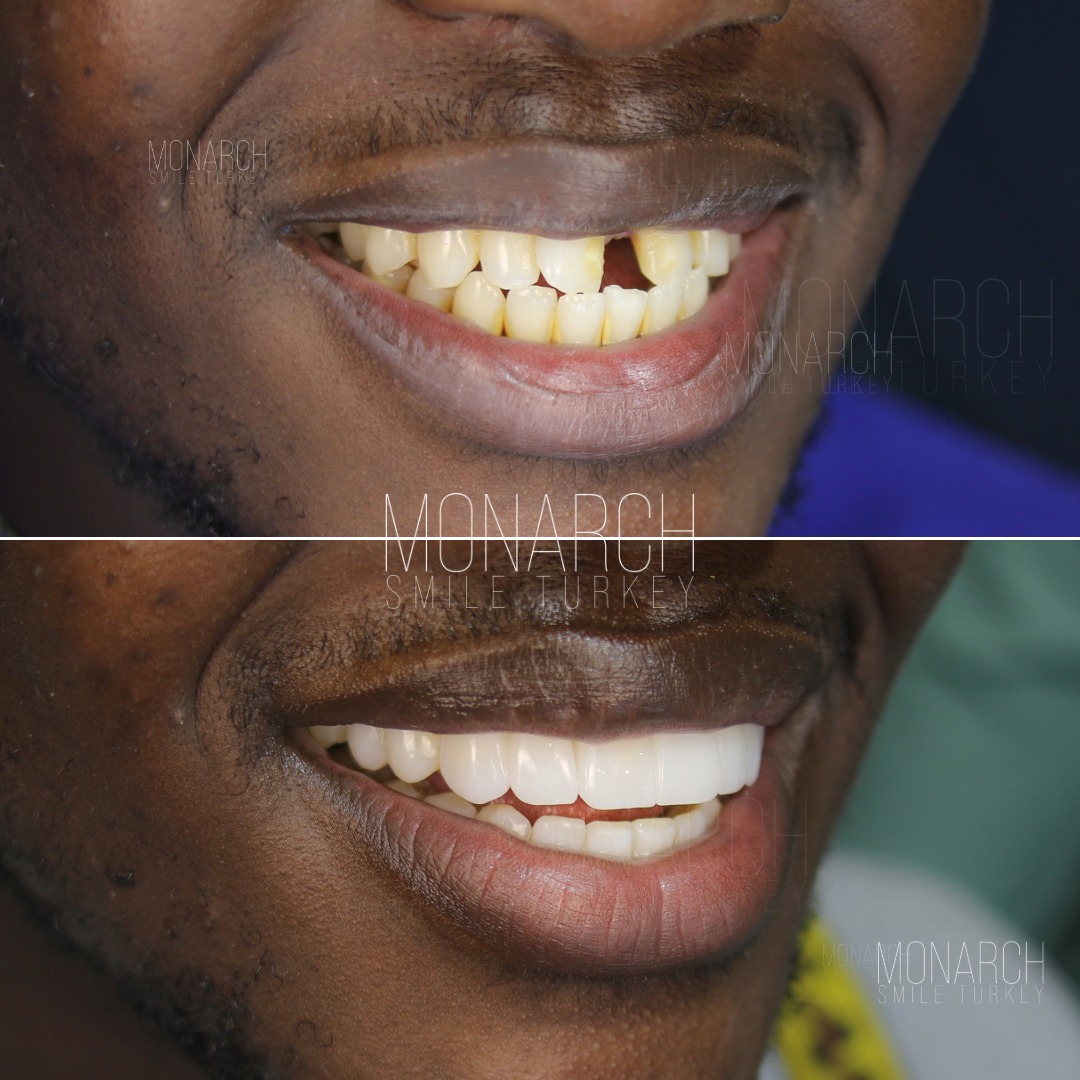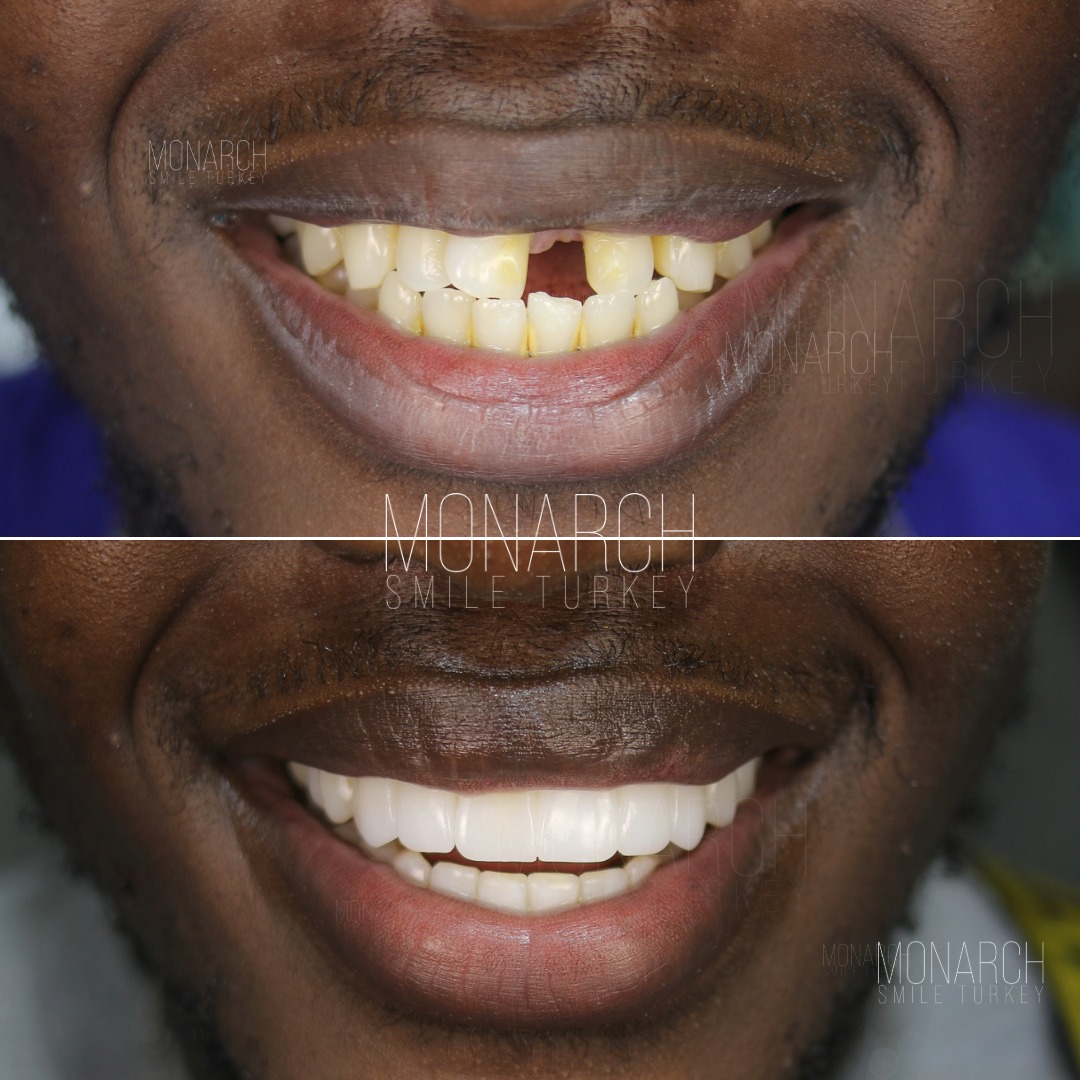What are dental implants in Turkey?
Dental implants are a long-term solution for missing teeth. They're small titanium screws placed into the jawbone, acting like natural tooth roots.
The material? Usually titanium, because the body gets along with it really well. No reaction, no allergy. After healing, a crown is added on top. It looks just like a real tooth, and honestly, it feels like one too.
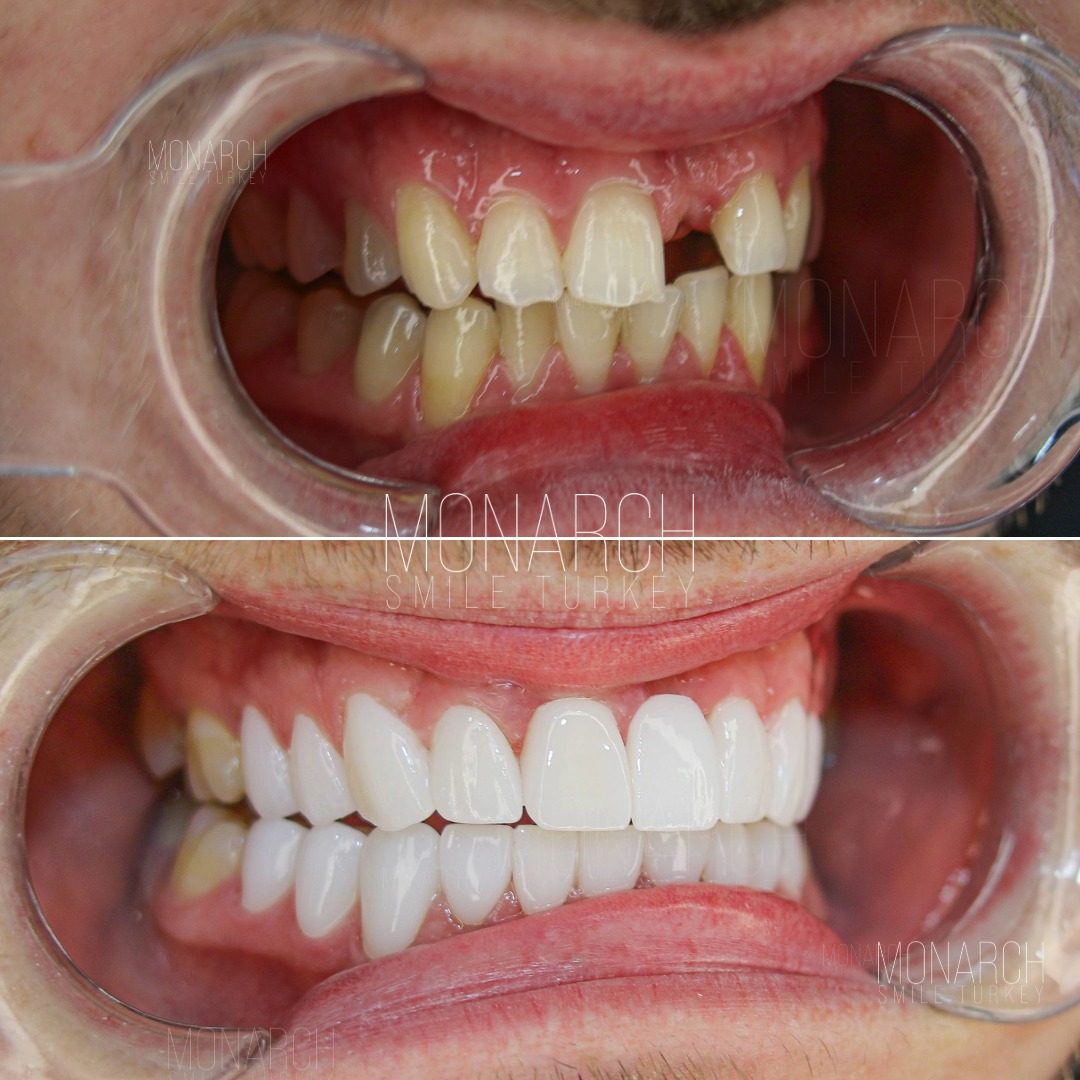
Once it's all done, you can eat, talk, and smile without thinking twice. And the best part is, if you take care of it, it stays with you for years. Sometimes even for life.
Types of dental implants in Turkey
Not all implants are the same. Your dentist picks the one that fits your mouth, bone, and needs best. But here are the main types people usually get:
Endosteal implants
This one's the most common. It's a small titanium screw placed into your jawbone. After healing, it holds a fake tooth or even a full row. If you've got good bone, this is usually the go-to.
Subperiosteal implants
Not enough bone? No worries. This one sits on top of the jawbone, under the gum. It's used when bone is thin and grafting isn't an option.
Zygomatic implants
A bit rare, but super helpful. These go into the cheekbone instead of the jaw. Dentists use them when jawbone loss is severe.
There are also implants called All on 4 or All on 6. 4 or 6 implants are placed, and a full set of teeth is attached to them.
Bottom line! Your dentist decides the best fit after checking your mouth and X-rays. So, don't stress about which is suitable for you. What matters most is getting it done right, with care and skill.
Dental Implants Procedure in Turkey
Briefly;
- Step Description
- Oral exam, X-ray
- Treatment plan made
- Impressions are taken
- Local anesthesia given
- Implant screw placed
- Healing time begins
- Abutment and mold
- Final crown placed
Your dentist will take a look inside your mouth, ask about your medical history, and take an X-ray or 3D scan. This helps them check your jawbone and plan everything clearly. If the bone's too thin, they might do a bone graft first, but not always.
Next comes the measurements. Your dentist takes impressions of your mouth. These are used to design the implant and the crown so it fits perfectly and looks like a real tooth.
The implant procedure itself is done under local anaesthesia. You're awake, but you won't feel pain, just a little pressure. The dentist places the titanium screw into your jawbone and closes the gum over it. That's it for now.
Then comes healing. The bone slowly fuses with the implant over the next 2-4 months. This is what gives the implant its strength. While waiting, you can go about your life as usual; just avoid biting on hard stuff.
Once healing's done, you come back to the clinic. The dentist uncovers the implant and attaches a small piece called an abutment. Then, they take another impression. Your final crown is made in a lab, usually in a few days or weeks.
When the crown is ready, it's placed right on top. The dentist checks the bite and shape. Once it fits perfectly, you're all done. You will feel and work just like a natural tooth.
Why need a dental implant?
Reason Why need?
- Missing a tooth
- Tooth loss from decay
- Injury or trauma
- Failed root canal
- Loose or broken bridge
- Trouble with dentures
- Bone loss prevention
- Want natural-looking smile
Teeth just don't stay with us forever. Maybe it was an accident, maybe it decayed over time, or maybe it was never there to begin with. Either way, if there's a gap, that space can cause more trouble than you think.
A dental implant steps in when a natural tooth steps out. It fills that space with something strong, stable, and lifelike without touching the teeth next to it.
So, who usually gets them?
Anyone who's missing a tooth and has healthy gums and decent bone can consider it. It does't matter if you're 30 or 70. In fact, many people in their 60s and 70s go for implants because they want something better than removable dentures.
Little gap, big problem?
Yes. One missing tooth can shift others and mess with your bite.
That's why implants are so popular. People want to chew properly, speak clearly, and smile freely. And implants help with all three.
They're also a top pick if you hate how dentures move around or if bridges aren't an option. Long story short, if you've got missing teeth and want something that looks and feels real, implants are a game changer.
How long do dental implants last?
Short answer? A very long time.
Dental implants last between 15 and 25 years. With great care, they can even last a lifetime. But here's the deal: it depends on you.
Think of an implant like a strong anchor. If you keep your mouth clean, visit your dentist, and avoid bad habits, it stays rock solid. But if you smoke, skip brushing, or grind your teeth, trouble starts.
So yes, implants are built to last. But like any long-term investment, they need maintenance. It's not magic; it's just good care.
What are zirconia teeth implants?
Zirconia implants are tooth roots made from a super-strong ceramic. They go into your jaw, just like titanium ones, and hold your new teeth in place.
Zirconia is tough. Dentists actually call it “ceramic steel.” It doesn't rust, it doesn't corrode, and it blends right in with your natural teeth.
Why do some people prefer it?
Because it's metal-free. Perfect for people with metal allergies or just those who want a more natural option.
Another big plus? It resists plaque. So, it's harder for bacteria to stick around. That's a win for your gums.
Think of it like this: titanium is the classic car, proven and reliable. Zirconia? It's the sleek electric version. New, stylish, and just as powerful.
So, if you're looking for a strong, natural-looking, metal-free dental implant… Zirconia might be your perfect match.
What are front implant teeth?
Front implant teeth replace missing teeth in the front of your mouth. They're placed carefully to match your natural smile. The shape, colour, and position all matter, because this area shows the most. It's not just about chewing; it's about confidence too.
Why is it important to choose the right clinic?
Because your teeth aren't something you gamble with.
Choosing the right clinic isn't just about nice decor or a fancy website. It's about skill, safety, and results. You need a place where dentists actually know what they're doing and care about how you feel.
A good clinic checks your bone health. They use real scans, not guesswork. They plan every step before they touch a single tool. That's how implants stay strong for years, not months.
And let's be honest, if something goes wrong, you don't want to deal with “oops.” You want experts who fix it before it even happens.
Think of it like flying a plane. You don't care how comfy the seat is if the pilot doesn't know how to land.
So, take your time. Ask questions. Read real reviews. Look at before and after photos. Because the right clinic doesn't just fix your smile, it protects it.
Why are permanent teeth implants affordable in Turkey?
Here's the truth: Turkey does not lower the quality. It just lowers the cost.
Permanent teeth implants in Turkey are affordable not because they're cheap… but because the system works smarter. Dentists here don't pay sky-high rents. Lab costs are lower.
Clinics in Turkey invest in good tech, trained doctors, and real patient care. But they don't charge you like you're buying a luxury car. You get the same brands, sometimes even the same implant systems used in the US or UK.
Think of it like eating at a five-star restaurant... in a city where the food is half the price. The flavour stays the same. The bill just feels lighter.
Why are dental implant reviews in Turkey important?
Because real stories tell you what brochures won't.
Reviews help you see the truth, not the shiny ads, not the perfect websites. Just people, like you, who've been there, sat in that chair, and smiled at the end (or didn't).
You learn which clinics care, which doctors listen, and where things actually go smoothly. Reviews show before-and-after results, healing experiences, and even how clinics treat nervous patients.
Think of reviews like test-driving someone else's car before you buy your own.
In a place like Turkey, where there are hundreds of options, reviews help you filter. They turn guessing into knowing. And let's be honest, when you're trusting someone with your smile, you deserve more than a pretty Instagram post.
So yes, read the reviews. Watch the videos. Let others help you choose right. Because their experience could save your time, your money… and your teeth.
Tooth implant side effects
Most side effects are mild and go away fast.
You might feel swelling, a bit of pain, or light bleeding. That's your body healing, nothing scary.
Infections can happen if you don't keep it clean. Smoking makes healing harder. Sometimes there's numbness or tingling, but it's usually temporary.
It's like a small bruise after a shot, uncomfortable, but it passes. Good care makes all the difference.
Teeth implants Turkey Before and After
FAQs
Do teeth implants hurt? How painful is a dental implant?
Here's the good news, it's not as scary as it sounds.
During the procedure, you feel nothing. Thanks to local anaesthesia, the whole thing is pretty smooth. Like getting a filling, but longer.
Afterwards? Sure, there might be some swelling or a dull ache. Think of it like having a sore muscle after the gym. It's more discomfort than real pain.
Most people manage it with just basic painkillers. No drama, no sleepless nights.
Also use a cold compress. It will lower swelling and your pain.
What are bridge implant teeth?
Let's make it super clear. Bridge implants are used when you're missing more than one tooth in a row. But instead of putting one implant for each missing tooth, dentists place two implants and build a “bridge” between them.
It's like placing two strong pillars and laying a path between them. The implants act like roots. The bridge sits on top, filling the gap and blending in with your natural teeth.
Looks natural, feels stable, lasts long. And you don't need to touch the healthy teeth on either side, unlike old-school dental bridges.
So, if you've got a few teeth missing in one spot, this might be your perfect match. Less drilling, more smiling.
Are tooth implants worth it?
Yes, 100% yes.
If you're looking for something that feels like your real teeth, this is it. You eat, smile, talk… without even thinking about it. That's what makes implants different. They're not just “fake teeth.” They become part of you.
They last for decades. No slipping, like dentures. No grinding down other teeth, like bridges. Just a solid, natural-looking tooth that stays put.
It's like upgrading from a patch to a full repair. You pay once and enjoy every single day after.
So yes, they're an investment. But it's not just for your smile. It's for your comfort, confidence, and peace of mind. And that? Totally worth it.
What is the best age for dental implants?
There's no perfect age, but there is a right time.
The best age? After your jawbone fully develops. That usually means 18 and up. For some, a bit later. Your bones need to be stable before an implant can hold tight.
Many people get implants in their 40s, 50s, or even 70s. As long as your gums are healthy and your bone is strong, you're good to go.
So, the real answer? The best age is when you're ready, physically and mentally. Whether you're 20 or 65, it's never too late to bring your smile back to life.
Is a bridge or implant better?
That depends on your mouth and your goals.
Dental implants go straight into the bone. They don't touch nearby teeth. That means your healthy teeth stay safe. Implants last longer, too. Sometimes even for life.
Bridges, on the other hand, rely on the teeth next to the gap. The dentist has to shave those down to hold the bridge in place. It works well, but… It's not forever. Most bridges last 10-15 years.
Implants feel more natural. They're stronger. And they stop bone loss under the gums, which bridges can't do.
But bridges can still be a great choice. Especially if the neighbouring teeth already need crowns or if there's not enough bone for an implant.
So which is better?
If you want long-term, low-maintenance, and a natural feel, implant wins.
If you want something quicker or your budget is tighter, a bridge may fit better.
It's like choosing between sneakers and hiking boots. Both take you forward, but the right one depends on the path.
Are Turkish dental implants safe?
Yes, and not just “safe”; they're seriously impressive.
Turkey has a strong healthcare system. Clinics go through strict inspections. The Ministry of Health regularly checks if everything's up to standard. And honestly? Most top clinics here overdeliver.
Dentists here aren't just experienced; they're masters. Many have trained both locally and abroad. They follow the newest techniques. They use digital scans, 3D planning, guided surgery… all the high-tech stuff you'd expect from a top-tier clinic.
And the clinics? Many look more like boutique hotels than medical spaces. Modern equipment. Clean, organised, and fully equipped for implants from start to smile.
Plus, Turkish hospitals and private dental centres are used to treating international patients. That means English-speaking staff, step-by-step care, and clear communication.
Think of it like flying from one city to another. Would you get on a plane with no checklist, no control tower, and a rookie pilot? Of course not. In Turkey, every step of your dental journey is mapped, checked, and double-checked.
So yes, dental implants in Turkey are safe, as long as you choose a licensed, well-rated clinic with real specialists. And trust me, there are plenty.
As MonarchSmileTurkey dental clinic, we are pleased to achieve results that exceed expectations even in the most difficult dental cases.
For more detailed information, please contact us or visit us at our dental clinic.

